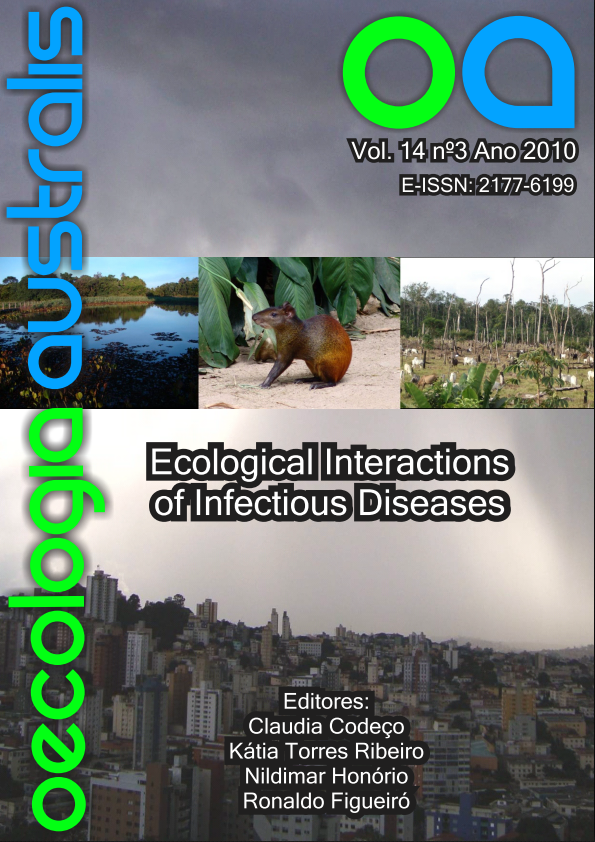CONDIÇÃO DE SAÚDE DAS TARTARUGAS MARINHAS DO LITORAL CENTRO-NORTE DO ESTADO DO RIO DE JANEIRO, BRASIL: AVALIAÇÃO SOBRE A PRESENÇA DE AGENTES BACTERIANOS, FIBROPAPILOMATOSE E INTERAÇÃO COM RESÍDUOS ANTROPOGÊNICOS
Keywords:
tartarugas marinhas, agentes bacterianos, fibropapilomatose, resíduos antropogênicos, saúde ambiental.Abstract
HEALTH STATUS OF SEA TURTLES FROM THE CENTRAL-NORTH COAST OF RIO DE JANEIRO STATE, BRAZIL: EVALUATION ABOUT THE PRESENCE OF BACTERIAL AGENTS, FIBROPAPILLOMATOSIS AND INTERACTION WITH ANTHROPOGENIC DEBRIS. In Brazil, there are five species of sea turtles, commonly known as loggerhead (Caretta caretta), green turtle (Chelonia mydas), hawksbill (Eretmochelys imbricata), olive ridley (Lepidochelys olivacea) and leatherback turtle (Dermochelys coriacea). All are considered endangered under national and international criteria. Human action has caused many impacts on marine ecosystem and threatened its biodiversity. Several microorganisms inhabit this ecosystem and are able to cause infectious diseases. Therefore, marine environment changes contribute to the emergence of diseases, such as fibropapillomatosis in sea turtles. The ingestion of solid anthropogenic debris is another important menace to many marine organisms. In this context, the present study aims to investigate the presence of bacterial agents of the Vibrionaceae and Aeromonadaceae Families, the occurrence of fibropapillomatosis, and the interaction with anthropogenic debris in stranded sea turtles found along the central-north coast of Rio de Janeiro state, and thus assess the health status of these organisms and their environment. For this, beach monitoring was made at intervals of 15 days along the study area by GEMM-Lagos / Oceanites staff in 2009. Sea turtles were identified at species level and checked for the presence of external tumors. Specimens, when fresh, were necropsied and gastrointestinal contents screened to evaluate the presence of anthropogenic debris. Swabs were also collected for bacteriological analysis conducted by LRNCEB / FIOCRUZ -- an innovative survey for sea turtles in Brazil. 143 sea turtles were found stranded in the study area, and only four of the 68 analyzed turtles had tumors. 44% of the 32 gastrointestinal contents screened had anthropogenic debris, indicating a potential cause of sea turtles' death in the region, specially of Chelonias mydas. 88% of swabs were positive for Vibrio and 53% for Aeromonas. Thus, sea turtles, as sentinels of marine ecosystem health, indicate the environmental degradation of the central-north coast of Rio de Janeiro state, prompting the need for urgent mitigation actions.
Keywords: Marine chelonians; pathogenic microorganisms; tumors; plastic debris; environmental health.

